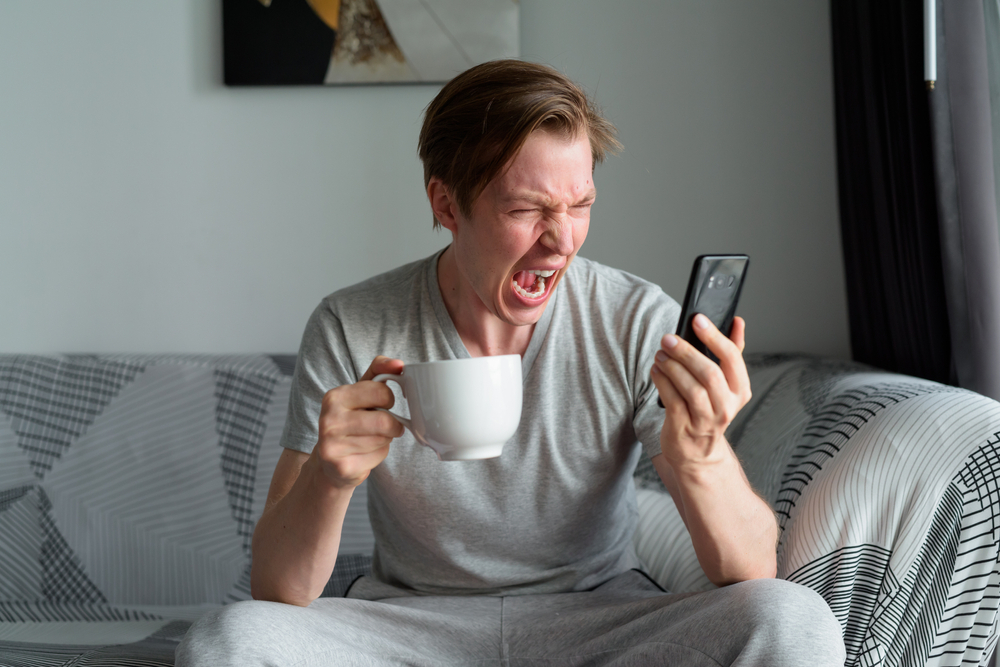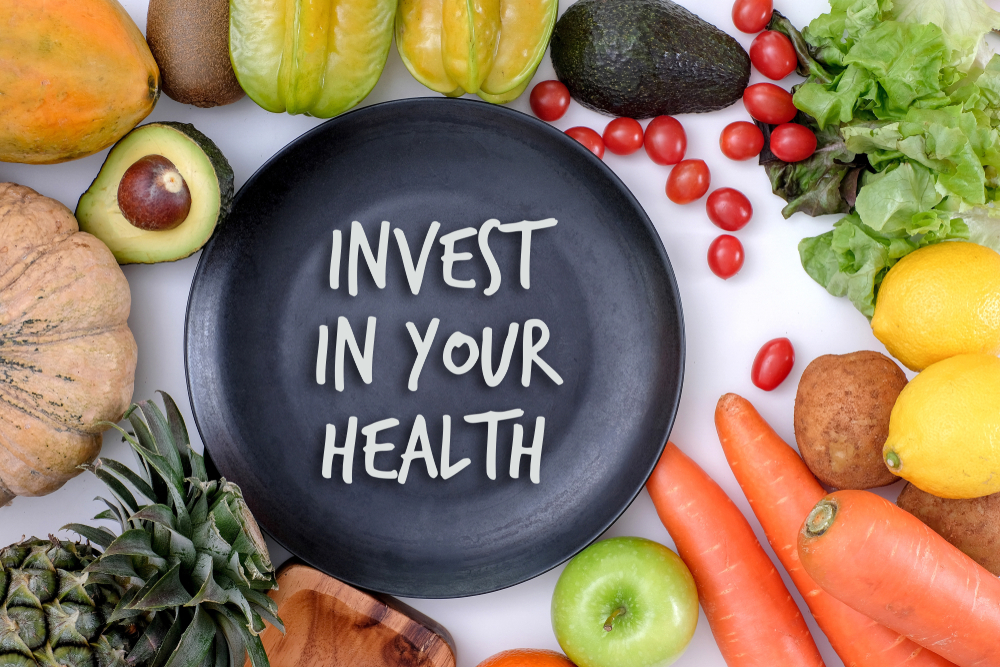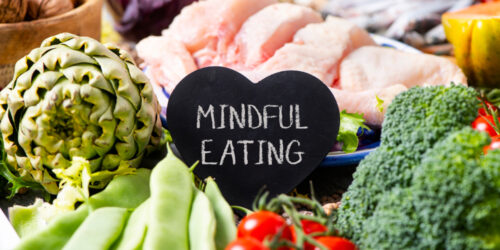The Caffeine-Stress Connection: Finding the Right Balance Holistically

Table of Contents
Step into a world of insight where the aromatic allure of coffee meets the delicate balance of holistic well-being, all while unraveling the mysterious interplay between caffeine and stress. In this unique exploration, we delve into the fascinating connection that links the consumption of caffeine to stress levels, and how a holistic approach can help achieve the elusive balance. Get ready to embark on a journey of discovery, where science, wellness, and modern lifestyle converge.
Understanding the Caffeine-Stress Connection
Imagine a dance within your body, where the beats are provided by adrenaline, and caffeine leads the steps. Each sip can turn the volume up on your stress hormones, making your heart race a little faster and your mind buzz with alertness. But this rhythm isn’t just a one-way street; stress and caffeine have a two-way relationship, where one can intensify the other. It’s essential to tune into this internal music and learn how it affects your well-being.
The Chemical Dance: How Caffeine Affects Stress Hormones
When you sip a cup of coffee, you’re not just getting a boost of energy. You’re also partaking in a complex chemical tango with your body’s stress hormones. Caffeine acts as a stimulant by blocking a neurotransmitter called adenosine, which normally promotes relaxation. This blockade pumps up the production of adrenaline and cortisol, the body’s natural alarm signals, making you feel more alert and focused.
However, dance too long with caffeine, and your stress hormones might lead. Overexposure to caffeine can leave your adrenal glands worn out, and you could end up feeling more stressed out than sharp. That’s because your body starts to depend on caffeine just to achieve normal levels of alertness and productivity. It’s all about finding the right rhythm between enjoying that cup of joe and keeping your stress hormones in a perfect pas de deux.
Stress Impact: Unveiling the Bidirectional Relationship with Caffeine
Ever wonder why a cup of coffee can both be a pick-me-up and a let-down? It’s because there’s a two-way street between your stress levels and your caffeine consumption. Caffeine can rev you up, but it can also tell your body to pump out more stress hormones like cortisol and adrenaline. This can make you feel on edge and even a little jittery.
But the relationship doesn’t end there. When you’re already stressed, those extra cups of java can actually make things worse, pushing your stress levels even higher. It’s a cycle that’s as robust as your darkest roast, yet it can leave you feeling pretty busted. To put it simply, the more stressed you are, the more sensitive to caffeine you might become, and the more caffeine you consume, the more stressed you might feel.
Exploring Holistic Wellness Solutions

Diving into the world of holistic wellness invites us into a place where every sip of coffee has a purpose beyond just waking us up. It’s about nurturing both our mind and body with the nutrients they need, while also engaging in practices that strengthen our inner resilience. This approach goes beyond the simple act of cutting back on caffeine; it’s a proactive journey to stress management, where what we eat, how we think, and the way we live all play critical roles. Let’s discover how feeding our bodies the right things and adopting mindfulness can drastically reduce our reliance on that morning cup of joe.
Nourishing the Mind and Body: Nutrition and Stress Management
Eating right is like fueling a car; it keeps our engines running smoothly and prepares us for the road ahead, especially when that road involves stress. Nutrition plays a crucial role in how we handle stress—poor diet choices can make us more sensitive to stress triggers, while foods rich in certain nutrients can help dampen the stress response. A balanced diet not only supports our physical health but also contributes to mental well-being.
To manage stress holistically, incorporating foods rich in vitamins, minerals, and antioxidants is key. Think of vibrant fruits and veggies, whole grains, and omega-3-packed fish as your stress-busting allies. These nutritional powerhouses help to build a resilient body—one that can gracefully dance with day-to-day stress without getting tripped up. In contrast, reaching for sugary snacks or highly-processed foods when stressed might offer momentary comfort, but they can lead to energy crashes and increased anxiety levels in the long run.
Mindfulness Practices: Enhancing Resilience and Reducing Caffeine Dependence
In our fast-paced world, it’s easy to reach for a cup of joe to kickstart the day. But there’s a more serene path to maintaining energy and focus: mindfulness practices. These ancient techniques pack a modern punch, empowering you to bolster your resilience against stress while helping to curb that reliance on caffeine.
Mindful meditation, for instance, isn’t just a quiet escape; it’s a rocket to inner peace. Spending a few minutes each day focusing on your breath can teach your body to respond to stress more calmly. It’s like a brain exercise, making you mentally fitter and less inclined to depend on that espresso machine. Plus, bringing yoga into the mix not only flexes your muscles but also eases your mind, helping you resist stress triggers with grace. Imagine facing a hectic day powered by inner calm rather than caffeine—it’s truly a transformative way to live.
Strategies for Balanced Consumption

Sometimes it feels like we’re walking a tightrope when it comes to enjoying our favorite caffeinated treats without letting the jitters take over. It’s all about timing and alternatives to keep that feel-good buzz without tipping into stress overload. Let’s dive into some savvy ways to sip smartly and embrace nature’s own energy boosters to keep our inner zen untouched.
Caffeine Timing: Finding Optimal Hours for Consumption
Imagine you’re a strategic gamer, and caffeine is your power-up—it’s all about timing. To ace the game of energy, you don’t hit the power-up whenever you please; you wait for the right moment. That’s how we should approach our coffee breaks. Research suggests that your cortisol levels, the stress hormone, naturally peak during the early morning hours. This means having your coffee as soon as you wake up might not be the best move.
The trick is to find a sweet spot when your cortisol starts to dip—typically a few hours post waking up. For most people, this means mid-morning or early afternoon is prime time for caffeine. You’re hitching a ride on your natural alertness wave and then smoothly surfing the caffeine boost just as your body starts to feel a bit more mellow. But, here’s the kicker: limit caffeine at least six hours before bed to avoid staring at the ceiling all night. A restful sleep is a non-negotiable cornerstone of wellness, after all.
Alternatives and Adaptogens: Exploring Holistic Substitutes and Enhancers
Ditching the usual cup of joe for something less jolting might just be the key to saying “see ya” to unwanted stress. Adaptogens are the new cool kids on the block. These natural buddies can help your body handle stress like a champ. Think about it: instead of reaching for that third cup of coffee, why not stir up a soothing mix of ashwagandha or holy basil?
But wait, there’s more! If you’re up for it, there are other great picks that won’t make your heart race like it’s on a marathon. Herbal teas, for example, can be an excellent swap-out. They come in all kinds of calming flavors – chamomile, peppermint, and even lavender. And let’s not forget about those green smoothies packed with leafy greens – they’re not just for fitness influencers, they’re stress-busters too! So go ahead, give your body a high-five and try some of these natural stress-relievers.
Empowering Decision-Making

Embarking on the road to a balanced lifestyle requires thoughtful choices and personalized strategies. Tuning into your body’s signals and acknowledging how it reacts to caffeine can guide you toward decisions that foster health and tranquility. This is a chance to craft a life where well-being is the cornerstone, empowered by knowing your unique needs and preferences. Let’s take control and weave together habits that promote a vibrant and stress-free existence.
Personal Reflection: Navigating Individual Thresholds and Responses
Everyone’s body reacts differently to caffeine – what might perk one person up can make another feel edgy. It’s all about knowing your own limits. Take a moment to reflect on how your morning joe makes you feel. Do you buzz with energy or do you feel your heart racing with anxiety? By keeping a personal caffeine diary, you can start to see patterns. Note down what you drink, how much, and how it affects your mood and energy levels.
Seeking your sweet spot for caffeine intake can be a bit of a balancing act. Listen to your body and adjust how much you drink accordingly. If you notice you’re more jittery than alert, try cutting back. On the flip side, if you’re feeling sluggish, assess if a small boost might be needed. It’s a personal journey, so empower yourself to make the choices that bring out the best in your productivity and peace of mind.
Building Healthy Habits: Cultivating a Lifestyle of Harmony and Vitality
Developing healthy habits is like planting seeds in a garden—it requires patience, care, and the right conditions to flourish. Envision a daily routine not as a set of strict rules, but as a flexible framework that fosters a balanced life. It’s about making intentional choices that align with a deeper sense of well-being. Whether it’s starting the day with a glass of water, choosing a brisk walk over a passive pastime, or establishing a calming bedtime ritual, these small acts add up, crafting a tapestry of harmony and vitality.
When it comes to sipping on your favorite brew, think of moderation and mindfulness. Pay attention to how your body and mind respond to caffeine. Maybe you’ll discover that less is more, finding that sweet spot where just enough caffeine can uplift without overshadowing your inner calm. Prioritize sleep, protect your peace, and watch as these habits, rooted in self-awareness, bloom into a vibrant lifestyle—one where joy and energy are the fruits of your labor.
Conclusion
Finding the right balance between caffeine consumption and stress management is not merely a quest for wellness, but a profound journey of self-discovery. By understanding the intricate relationship between caffeine and stress and embracing holistic approaches, a harmonious union of vitality and serenity becomes attainable. It’s time to savor the aromatic bliss of thoughtful coffee indulgence, knowing that balance and well-being walk hand in hand.
FAQs
Q: Does caffeine help with balance?
A: No, caffeine does not directly impact balance. Its primary effects are related to alertness and stimulation rather than physical coordination or balance.
Q: What is the relationship between caffeine and stress?
A: Caffeine can contribute to increased stress levels in some individuals. It stimulates the release of stress hormones like cortisol, which may exacerbate feelings of anxiety or tension.
Q: How do you reverse caffeine anxiety?
A: To alleviate caffeine-induced anxiety, consider reducing your caffeine intake gradually, staying hydrated, getting enough sleep, and practicing relaxation techniques. It’s essential to identify and address the root causes of anxiety as well.
Q: Why does caffeine calm my anxiety?
A: While caffeine is generally known for its stimulating effects, in some cases, it might have a calming effect by blocking adenosine receptors. However, this varies among individuals, and excessive caffeine intake can lead to increased anxiety.
Q: Does caffeine block anxiety?
A: Caffeine can have both stimulating and anxiety-inducing effects. It may temporarily block adenosine receptors, providing a sense of alertness, but excessive consumption can lead to increased heart rate and feelings of anxiety in some people.
Q: Should I avoid caffeine if I have anxiety?
A: Individuals with anxiety may consider reducing their caffeine intake, as it can exacerbate symptoms in some cases. It’s advisable to monitor your own reactions to caffeine and consult with a healthcare professional to determine the best approach based on your individual health needs.
Useful resources
- Harvard Health Publishing: “Caffeine and Stress: Can Coffee Make You More Anxious?” by Emily Sohn, MD. This article explores the bi-directional relationship between caffeine and stress, discussing how caffeine can both exacerbate and alleviate stress symptoms depending on individual factors and consumption patterns. It also provides tips for managing caffeine intake and finding a healthy balance. https://www.healthline.com/health/caffeine-and-anxiety
- Natural Health News: “The Surprising Link Between Caffeine and Stress” by Jennifer Leavitt. This article delves into the physiological mechanisms behind the caffeine-stress connection, explaining how caffeine interacts with the nervous system and stress hormones. It also offers practical strategies for reducing stress and optimizing caffeine intake for better overall well-being. https://www.youtube.com/watch?v=ks1LhNIZCpM
- American Psychological Association: “Stress Management” webpage. While not directly focused on caffeine, this comprehensive resource from the APA provides valuable information on stress, its causes, and effective coping mechanisms. You can learn about different stress management techniques like relaxation exercises, mindfulness practices, and cognitive-behavioral therapy, which can be helpful in conjunction with managing caffeine intake for holistic stress management. https://www.apa.org/topics/stress
- Mayo Clinic: “Healthy Lifestyle: Stress Management” page. Similar to the APA resource, this page from the Mayo Clinic offers a wealth of information on stress management, including lifestyle changes, relaxation techniques, and professional help options. You can find tips on managing common stressors like work, finances, and relationships, which can complement your efforts to find the right balance with caffeine. https://www.cdc.gov/violenceprevention/about/copingwith-stresstips.html
These are just a few resources to get you started. Remember, everyone reacts diff








Hello,
I’m Abi, an English SEO copywriter and content writer. I excel in crafting blogs, articles, e-commerce product descriptions, SEO content, website content, business service descriptions, newsletter content, brochures, proofreading, social media captions, LinkedIn content, and SOPs.
My rate is USD 20 for every 1000 words of content. If you don’t have time to plan out your content, we can help you with that.
Feel free to email me at Contentwriting011994@outlook.com with any current requirements.
Thanks,
Abi
I don’t think the title of your article matches the content lol. Just kidding, mainly because I had some doubts after reading the article.
Thanks for sharing. I read many of your blog posts, cool, your blog is very good.
thank you
Fantastic site Lots of helpful information here I am sending it to some friends ans additionally sharing in delicious And of course thanks for your effort